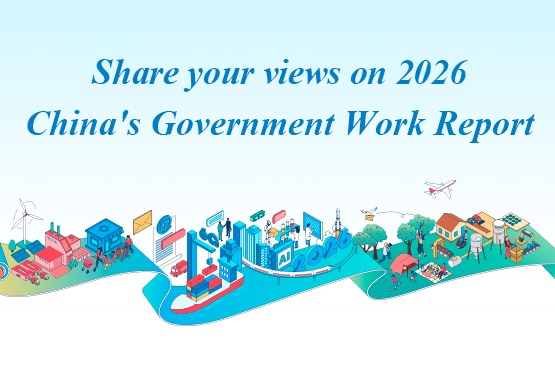Regulator vows stricter oversight of fintech sector


Adopting stricter supervision over the fintech industry will be high on the agenda of China's central financial regulators this year, experts said.
The China Banking and Insurance Regulatory Commission, the country's top banking and insurance regulator, said at its annual work conference on Tuesday that it will step up regulation of financial activities on internet platforms. That also means comprehensively including financial activities in its scope of supervision in accordance with laws, treating the same types of businesses equally and putting the same types of market players on an equal footing, it said.
The country will also strengthen regulation of cooperation between banking and insurance institutions and internet platforms, resolutely contain monopolistic and unfair competition practices and prevent the disorderly expansion and wild growth of capital in the financial sector, according to the commission.
The commission stressed that China will prevent and mitigate financial risks relentlessly and ramp up efforts to crack down on illegal financial activities and financial service businesses that have no license.
In an article published in the Financial Times in London on Wednesday, Pan Gongsheng, vice-governor of the People's Bank of China, the central bank, wrote that regulators will "insist on good supervision, equal access and fair competition" so that China's fintech industry can develop "in a way that balances capital expansion, innovation and public interests".
According to Pan, the fintech industry's growth has been vigorous over the past few years as regulators have struck a balance between encouraging fintech development and preventing financial risks via prudent regulation.
But, he said, fintech competition often leads to "winner-takes-all" outcomes, including market monopolies and unfair competition due to the network effect, which is when a product or service gains greater value as more people use it.
Meanwhile, fintech companies sometimes engage in excessive data collection and infringe on customer privacy, Pan added.
As fintech is still finance, in essence, the principle of "same business, same rules" should apply. The aim is to align business rules and standards with regulation to fend off arbitrage. Major economies have also reacted rapidly to the fintech-related problems with tougher punishment, new laws and improved supervision, he wrote.
"Financial regulators made it clear that all market players must obtain a license to engage in financial business," said Zeng Gang, deputy director-general of the National Institution for Finance and Development.
"The regulators also emphasized that licensed institutions conducting the same type of business should be put under the same regulatory standards, so that they will be prevented from capitalizing on loopholes in regulatory systems in order to circumvent unfavorable regulations," Zeng said.
Previously, however, fintech companies did not need to follow the same rules as commercial banks, even though they offer similar types of financial products, he added.
May Yan, head of China financial research at UBS, said that China's central regulators have implemented a number of tighter policies over the past 12 months, and the trend is expected to continue this year.
Yan said China's leading internet giants have occupied a large share of the country's fintech industry, which could easily turn into a monopoly and result in a number of problems such as extending too much credit and uncontrollable risks.
"There have been controversies over the ownership and confidentiality of the data accessed by the fintech companies," she said.
But Yan also pointed to fintech's irreplaceable role in the development of inclusive finance. The regulators will certainly weigh pros and cons and encourage innovation so that the fintech industry will see sustained development, she said.
- The Olympic spirit: a guiding light in everyday life
- Ambassadors promote China-Africa cooperation at lecture tour in Shanxi
- China's poverty alleviation achievements continuously consolidated, expanded in 2025
- China achieves key results in 10-year fishing ban on Yangtze River
- Line 4 of Fuzhou Metro begins operation
- Taiwan people pick 'dismiss' as most representative word of 2025




































